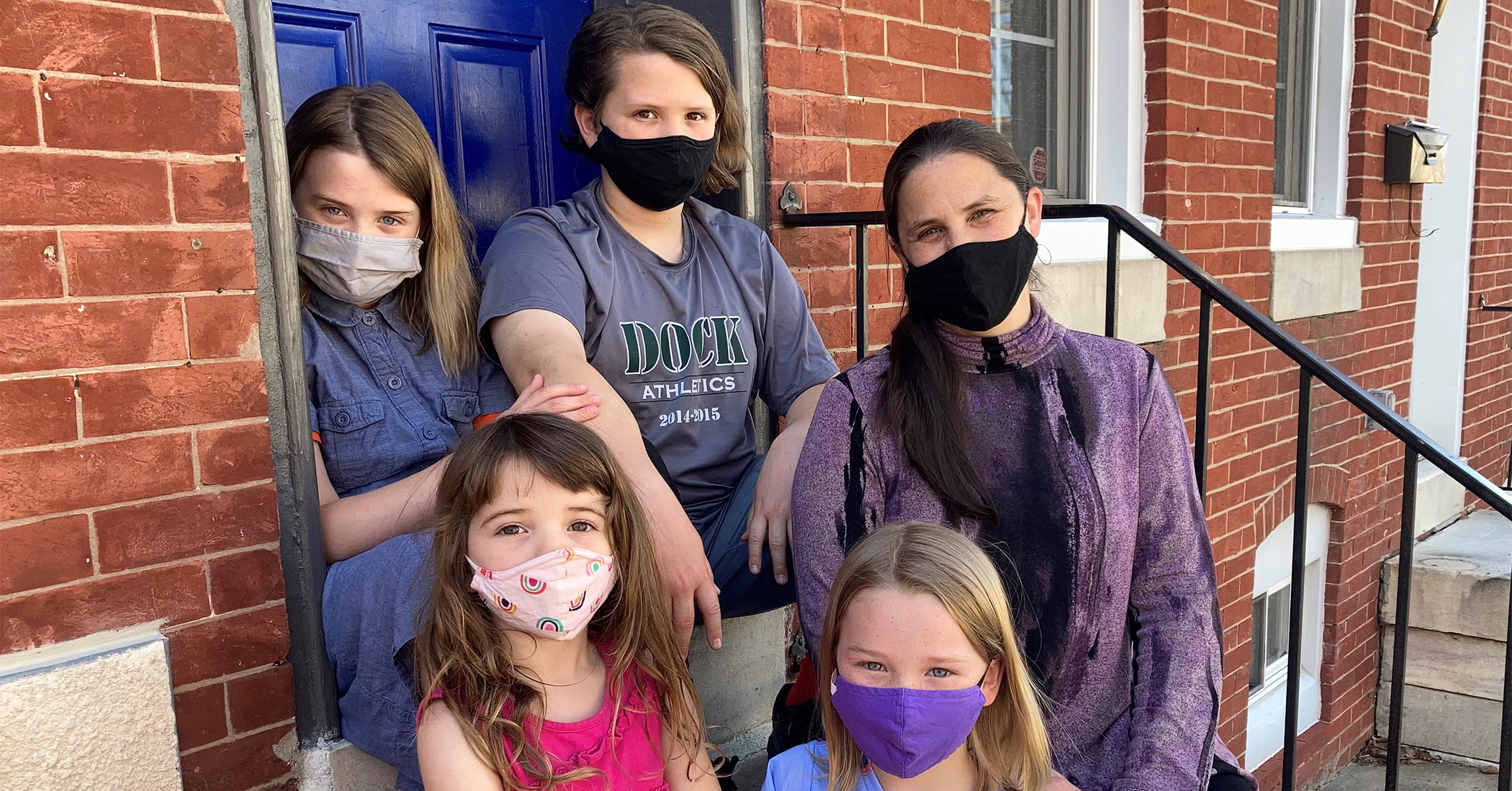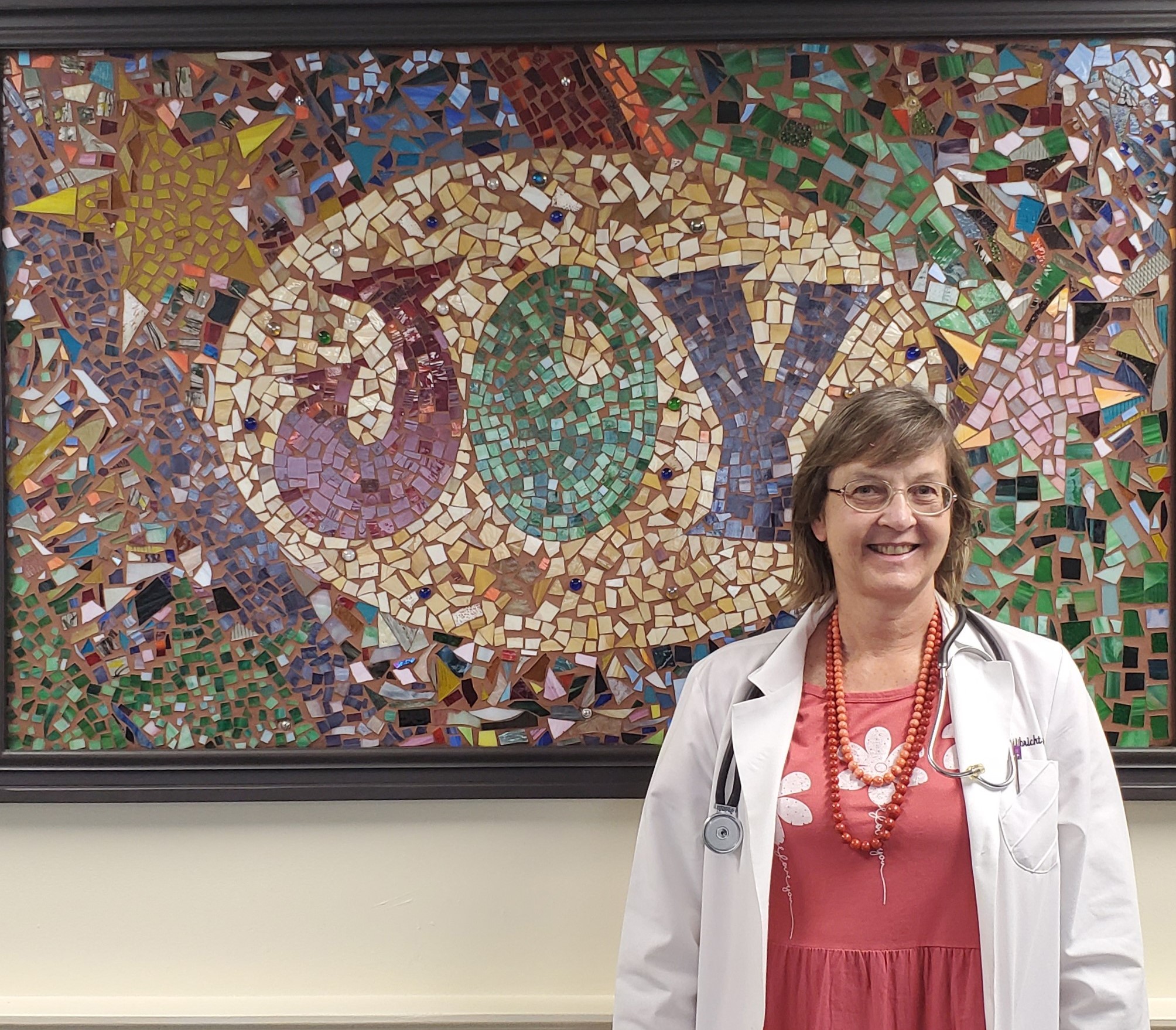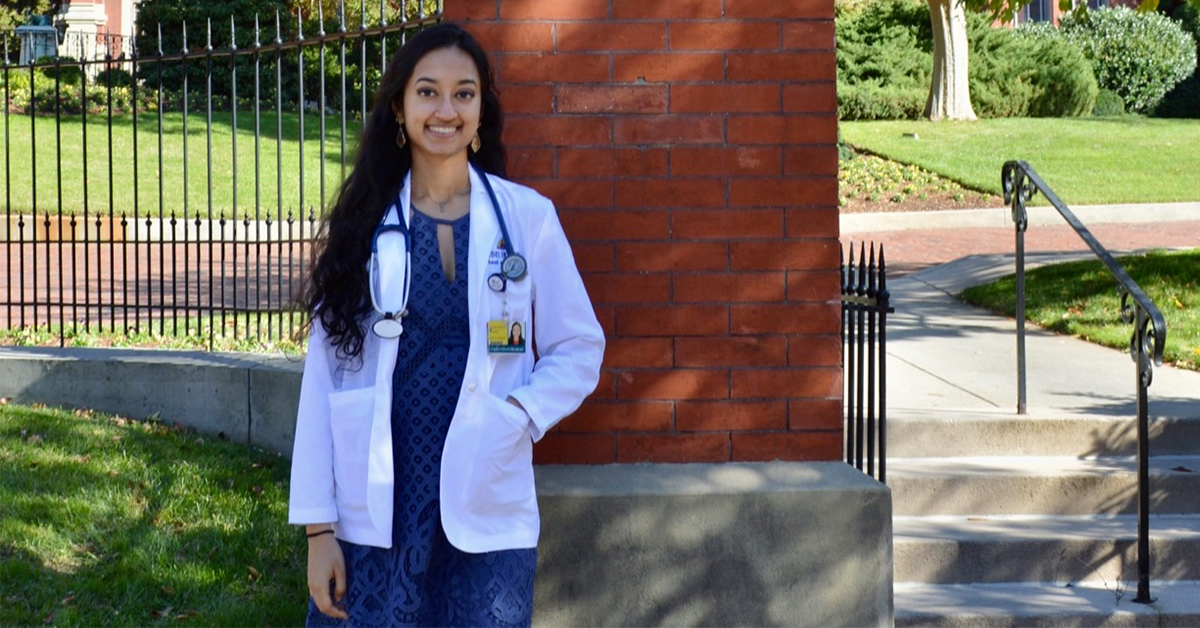When clinical laboratory scientist Carrie Holdren-Serrell heard another Johns Hopkins Medicine department was putting together Christmas care packages for Helping Up Mission, she knew she wanted to get her medical microbiology lab colleagues involved. Holdren-Serrell organized a flip-flop drive to donate shower shoes to the organization, which assists people experiencing homelessness, poverty and addiction.
“I’ve always felt led to help people who are in need,” says Holdren-Serrell.
When Holdren-Serrell dropped off the hundreds of flip-flops her team had collected, she brought her family along. Shortly after, Holdren-Serrell, her family and her Mt. Zion Church youth group began regularly volunteering to serve meals.
“Our family has been serving food the first and third Saturday of each month for three years,” Holdren-Serrell says. “A few of my lab colleagues serve dinner on the second and third Tuesdays of the month. Our team also collects socks, toiletries and other things they need.”
Kristen Anderson, Helping Up’s campaign director and volunteer and community engagement manager, says despite the COVID-19 pandemic, Holdren-Serrell, her family and her colleagues continue to be dedicated and loyal volunteers.
“Carrie was the first to inquire about how she and her co-workers could become more involved at the onset of the pandemic,” Anderson says. “Navigating the pandemic and our ever-changing needs on our campus, Carrie without hesitation reached out to see how they could be useful and help out wherever needed. Her constant willingness to stay engaged and serve is so admirable and humbling. We are truly honored to know her and are forever grateful for her time and service.”
All of Helping Up Mission’s overnight guests receive a bed for the night, two full hot meals (dinner and breakfast), toiletries for showering, clean clothes, and an evening chapel message.
“Our clients’ situations mirror many of those in Baltimore City who lack the education, skills, employment history and networks to gain livable wages and sustainable careers — many due to substance abuse,” Anderson says. “We are so much more than a hot meal and a warm bed to those experiencing homelessness. We provide our clients with the hope that they can transform their lives, return to their families and be productive members of society.”
If they realize a personal need for recovery from substance use, they may apply to the organization’s spiritual recovery program.
“The Spiritual Recovery Program provides a structured therapeutic community with a variety of clinical and beneficial services that would change patterns of destructive behavior,” Anderson says. “We also provide education and workforce development services. These services are a key part of our comprehensive recovery program, allowing clients to become self-sufficient through educational opportunities and vocational training."
Holdren-Serrell says she wanted to be a part of Helping Up Mission’s goal of getting people get back on their feet.
“I enjoy encouraging them,” Holdren-Serrell says. “Many of the men have become like family to us. I like to go out and pick up the trays from the tables. I always ask how their week went and talk to them about what’s going on in their lives. For me, it’s all about building relationships.”
Larry Giles, a former client who is now a Helping Up Mission staff member, says Holdren-Serrell and her family have been an important part of his recovery journey.
“Carrie is truly selfless with her time,” Giles says. “I was always thankful when I knew it was her Saturday to volunteer because she always had encouraging words when I was going through tough times. She even took time out to pray with me, which meant a lot. When you have had the type of life that I have had, it's hard to trust and open up to people, but Carrie and her family always knew how to make me feel comfortable.”
Holdren-Serrell’s colleague Karen D'Agostino, a Johns Hopkins medical laboratory technologist, also volunteers at Helping Up Mission.
“People who are trapped in addiction sometimes feel very alone and isolated,” D’Agostino says. “Just participating in the ordinary routine of a meal is a positive way to interact with someone. It’s a way of communicating that I care about them.”
Anderson says Helping Up Mission would not be able to function without the dedication and compassion of their volunteers.
“Our volunteers treat the clients with a sense of dignity and inclusion,” Anderson says. “A simple, genuine smile from a volunteer can make all the difference, helping them feel supported and like a human being and part of society. We are so fortunate to have a diverse group of volunteers from a variety of organizations. They all play a meaningful role in the recovery process.”



